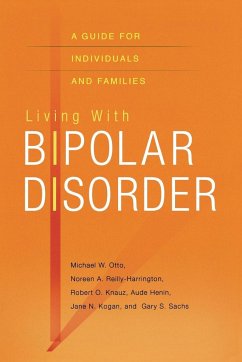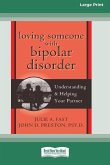Recent years have brought a striking increase in the number of psychosocial treatment studies of bipolar disorder and cognitive-behavioural approaches have been prominent among these studies with clear evidence that interest in this approach is rising among experts in bipolar disorder. Studies of CBT treatment of bipolar disorder have shown dramatic effects with relapse rates significantly lower (44% vs. 75%) than with comparison treatments. This book is a self-directed, relapse prevention for individuals living with bipolar disorder. It uses the collaborative care model to allow individuals living with bipolar disorder to take control of their wellness. It provides self-directed questionnaires and monitoring forms to reinforce skills and practices learned in therapy, gives information about the details of living with bipolar forms disorder, advice for best practices to avoid relapses, and teaches how to anticipate problems. Collaborative care is a way for patients and their family or friends to work together with clinicians to get the best results from treatment.Living with bipolar disorder requires the help and support of a network of people who are able to recognise potential problems, provide encouragement, practice new coping skills, and understand the disorder. This workbook provides information and instructions for friends and family so they feel equipped to participate in the therapeutic process. Emphasis is placed on defining the disorder and identifying areas where the patient is most at risk for relapse.
Hinweis: Dieser Artikel kann nur an eine deutsche Lieferadresse ausgeliefert werden.
Hinweis: Dieser Artikel kann nur an eine deutsche Lieferadresse ausgeliefert werden.








